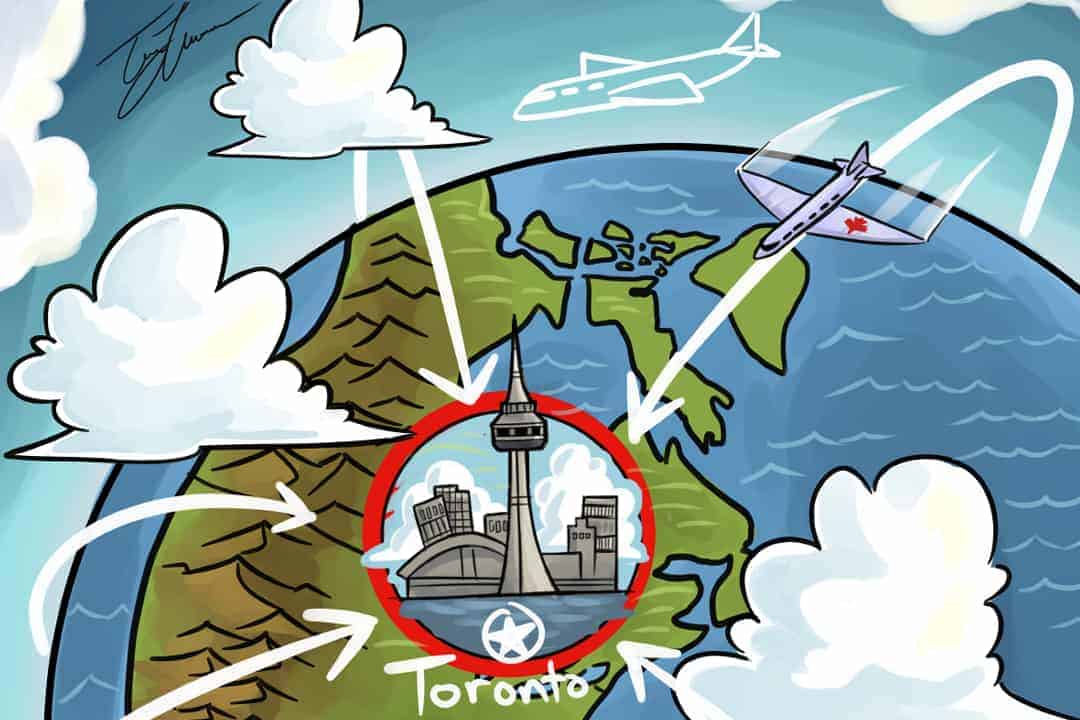Being an international student in Canada can often be very challenging. Leaving your home, moving to a new country, and adjusting to a new culture and education system is a struggle.
However, this process becomes even more challenging when trying to navigate the restrictive system Canada has in place for international students. The previous legal limitations stated that international students could only work a maximum of 20 hours a week. This work-hour cap left international students vulnerable as they struggled to find job opportunities in an already competitive market.
For instance, when I received my study permit, I was only legally allowed to work 20 hours a week. However, part-time jobs can require as many as 30 hours of work per week. With that being said, most part-time jobs considered part-time to be a minimum of 24 hours, which for me was not legally possible.
The 20-hour work limit for international students was problematic
As such, finding jobs that could accommodate a 20-hour work week was not an easy task. I remember a very awkward conversation with a supervisor at one of my part-time jobs as a sales advisor. I was scheduled to work 26 hours a week. However, when I informed my supervisor that I could only work a maximum of 20 hours, I received an annoyed look and an exasperated sigh.
Although it was not a pleasant experience, I can sympathize with my supervisor. After all, they needed people with long working hours, and because I could not work those hours it meant another employee would have to work extra hours. In other words, it was a lose-lose situation for all of us involved.
It’s restrictions like this that might demotivate employers from hiring international students. This makes it difficult for international students like me to gain experience and have a source of income.
The challenges I’ve experienced as an international student are not unique to me. Canada is the third-most popular country in the world for international students looking to complete higher education. As of 2021, there were around 388,782 international students enrolled in Canada’s higher educational system.
The Canadian government encourages students to join their educational systems but at the same time creates a restrictive employment policy that prevents students from getting jobs.
International students pay significantly more in tuition fees. This financial burden on top of the rising cost of living forces international students to find work to ensure survival. As a result, many international students are placed in a vulnerable position where they can easily be exploited. Students might have no choice but to work “under the table” in order to pay for the cost of their living arrangements. Sometimes students might work overtime and risk being deported.
Overall, these working conditions create a difficult and unsafe environment that increases the likelihood of exploitation and mistreatment. Additionally, this also interferes with students’ ability to further their careers in Canada as they struggle to gain experience and attain income that allows them to stay. However, all of this is about to change in the coming year.
Will temporarily lifting the 20-hour work limit help students?
Starting November 15, international students are no longer confined to the 20-hour work limit. Instead, they are able to work both full-time and part-time positions with unlimited hours. This change is incredibly significant for students like me.
International students will have the power to balance increased tuition costs and living costs in the coming year. Removing the 20-hour cap will also help prevent harassment and exploitation in the workplace. Another reason why this is significant is because it allows international students to gain experience in the industry of their choice.
Additionally, this initiative will allow international students to meet the Canadian work experience requirements for permanent residence. Before this policy was initiated, the process for permanent residency would have been a lengthy one that would only begin upon graduation.
I’ve often heard from other students how employers will sometimes avoid hiring international students because of all the restrictions they have.
While this change is a step in the right direction, it is not permanent. According to Sean Fraser, the Canadian Minister of Immigration, Refugees and Citizenship, this policy change is only temporary and will end in 2023. It also only applies to full-time students.
The Canadian government needs to continue finding solutions that support the well-being of international students in the workplace. According to Fraser, international students are a “large part of the labour market working in places such as gas stations, restaurants, grocery stores, and factories.” This confinement to the service industry is a form of exploitation of its own.
International students leave their homes to find new opportunities and bear large financial burdens. While Canada welcomes them, the 20-hour work cap is way too restrictive. There need to be more initiatives that allow international students to be able to work in Canada with ease.
Hiba Faisal is a fourth-year student at University College double majoring in English and political science and minoring in history.


